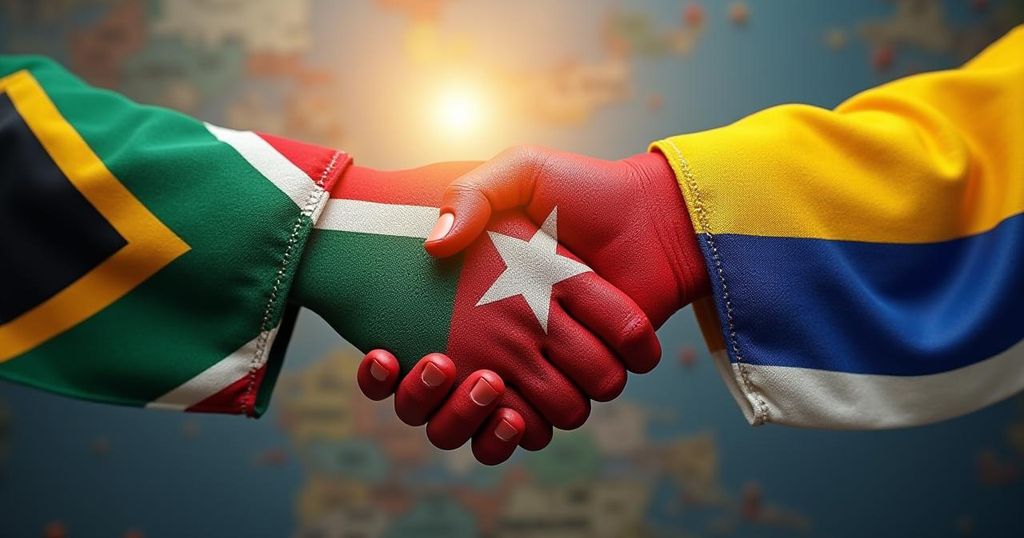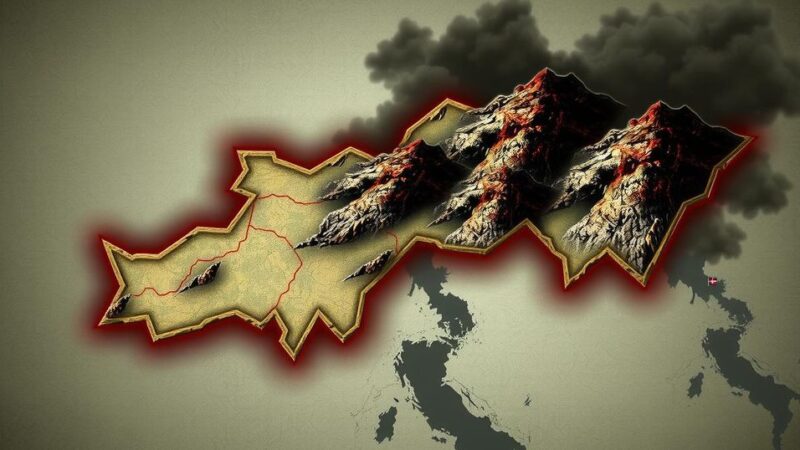Namibia and South Africa recently expressed their support for Cuba and Venezuela during a ministerial meeting in Swakopmund, emphasizing the adverse impacts of unilateral sanctions. They condemned Israel’s actions in Lebanon and demanded the lifting of sanctions on Zimbabwe while addressing the situation in Western Sahara following a European Court ruling.
On October 14 and 15, a ministerial meeting was convened in Swakopmund, Namibia, under the leadership of Namibia’s Foreign Minister Peya Mushelenga and South Africa’s Foreign Minister Ronald Ozzy Lamola. During this event, both nations voiced their unwavering support for Cuba and Venezuela, highlighting the economic challenges these Latin American countries are currently confronting due to unilateral sanctions. The ministers specifically called attention to the extensive economic, financial, and commercial blockade that the United States has enforced against Cuba for over six decades, urging an end to these restrictive policies. Furthermore, the meeting addressed the severe implications of Israel’s military actions against Lebanon, which were characterized as a significant violation of sovereignty and international humanitarian law. The gathering called upon the international community, including the United Nations Security Council, to diligently uphold international law in such matters. In addition to Cuba and Venezuela, the ministers also demanded the immediate and unconditional lifting of illegal sanctions imposed on Zimbabwe, citing that these penalties detrimentally impact the socioeconomic development of Zimbabwe and the broader Southern African region. Discussions during the meeting also encompassed the situation in Western Sahara, with both parties expressing their support for the ruling delivered by the Court of Justice of the European Union on October 4, 2024, which stated that the European Commission acted against the self-determination rights of the Sahrawi people.
The current political landscape reveals that several nations worldwide are increasingly vocal about their positions regarding external sanctions and military actions affecting global partners. South Africa and Namibia’s supportive stance toward Cuba and Venezuela highlights a trend wherein countries are advocating for sovereignty and economic rights of nations affected by international sanctions, particularly from Western powers. The longstanding embargo against Cuba, in particular, has been criticized for its adverse effects on the Cuban economy and its people’s welfare. Moreover, the call to action against Israeli military interventions in Lebanon underscores the growing concerns for human rights and humanitarian laws at play in international disputes. This context is essential as it emphasizes regional solidarity among African nations in addressing global issues and advocating for self-determination, as seen in discussions regarding Zimbabwe’s sanctions and the Western Sahara situation.
In conclusion, the recent ministerial meeting in Swakopmund highlights the firm commitment of Namibia and South Africa in advocating for the economic and political rights of Cuba and Venezuela, as well as their opposition to sanctions against Zimbabwe. The discussions also reflect broader concerns about international law and human rights violations, emphasizing the need for the global community to address these pressing issues comprehensively. The resolution on Western Sahara further illustrates the ongoing support for self-determination rights, indicating that these nations are advocating for equity and justice on the international stage.
Original Source: www.plenglish.com






